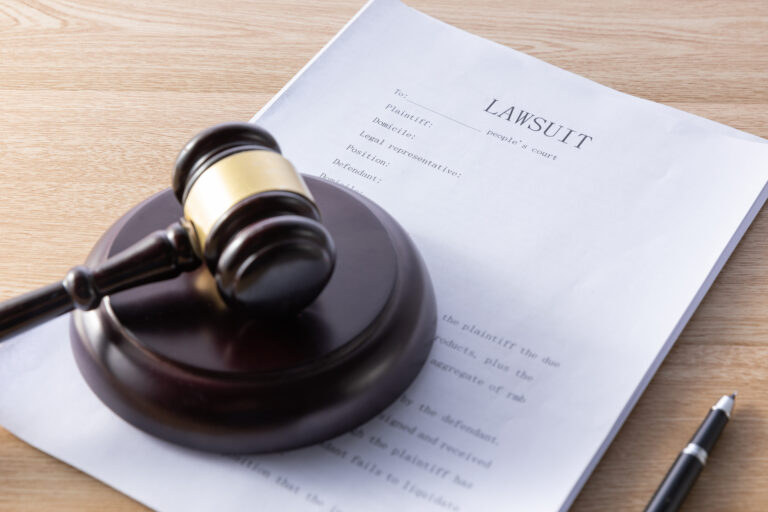Divorce Advocate In Bangalore
Dealing with family law matters can be tough. It’s a lot to take in, and you just want things sorted out. Finding the right person to help you through it all is a big deal. You need someone who knows the ins and outs of the courts here in Bangalore and can actually explain what’s happening. It’s not just about winning a case; it’s about getting a fair outcome for you and your family. That’s where having a good lawyer makes all the difference.
Key Takeaways
- Advocate Syed Khaleel Pasha is a seasoned Divorce Advocate In Bangalore, skilled in both courtroom battles and reaching peaceful agreements through mediation.
- He handles child custody and maintenance cases, focusing on plans that are best for the child and ensuring fair financial arrangements.
- The firm represents clients in the High Court for appeals and urgent family law matters, addressing complex legal questions.
- Property and financial issues stemming from marriage, including alimony and asset division, are managed with specific strategies.
- Choosing Advocate Pasha means benefiting from over 30 years of legal experience, clear communication, and strong support for your family law needs.
Divorce Advocate In Bangalore With Courtroom And Mediation Expertise
Divorce cases in Bangalore move in bursts—quick hearings one month, long waits the next. Courtroom grit matters, but a smart settlement can save years of stress. Courts run on paperwork and dates, not drama. Our job is to set a plan, push when timing helps, and pause when it protects you. For a city-wide view of strong family-law representation, see Bangalore-based advocates.
Contested Divorce Strategy Tailored To Bangalore Courts
Contested matters need a practical game plan that fits how Family Courts work here. We start with a tight chronology, pick the right forum, and decide early which grounds are worth pressing—cruelty, desertion, or others. Then we shape the interim relief track so you’re not waiting a year to get basics like maintenance or visitation.
- Early case map: grounds, evidence sources, likely objections, and a month-wise action list.
- Interim applications: Section 24 HMA (interim maintenance), Section 26 HMA (custody/visitation), and, where appropriate, parallel 125 CrPC or DV Act reliefs.
- Evidence plan: who testifies, what documents get exhibits, and what not to put on record.
- Cross-exam strategy: short, pointed questions that highlight inconsistencies without turning the courtroom into a shouting match.
- Settlement windows: keep one eye on potential terms even while preparing for trial.
Mediation First Approach For Amicable Settlements
We treat mediation as the default starting line. Bangalore’s court-annexed mediation (and private sessions when needed) can defuse tension and lock in practical terms that a judgment might not capture well—like holiday schedules or school fee sharing. The goal isn’t to be “nice”—it’s to be efficient and precise about what matters.
- Pre-mediation brief: your must-haves, nice-to-haves, and red lines.
- Parenting framework: routines, pickups, holidays, phone/video time, school choices.
- Money terms: temporary support during talks, then clear finalization—lump sum or monthly, with timelines.
- Property and stridhan: who keeps what, handover dates, and a short inventory so there’s no post-settlement confusion.
- Term sheet discipline: dates, bank details, and default clauses to avoid fresh litigation.
Agree on goals early: safety, time with kids, and financial breathing room. The rest follows from those three.
Drafting Petitions, Replies, And Evidence With Precision
Good drafting wins time and credibility. Petitions should be crisp on facts, grounds, and reliefs. Replies must admit or deny with reasons, not emotion. Evidence needs clean exhibits and an affidavit that tells the story without exaggeration.
- Petitions: clear timeline of marriage, breakup events, and specific reliefs requested.
- Replies: point-by-point responses, limited adjectives, no claims you can’t prove.
- Exhibits: marriage certificate, messages/call logs (relevant excerpts), bank records, photos, medical notes—indexed and legible.
- Affidavits and witness prep: one voice, consistent dates, and simple language.
- Hearing day kit: exhibit list, case law printouts, and a two-page argument note to stay on track.
Child Custody, Visitation, And Maintenance Representation
Custody fights are tough. Parents worry about time, kids need steady routines, and the court watches how everyone behaves. The child’s routine and safety come first in every strategy. We build plans that fit real life—work shifts, school runs, and health needs—so orders actually work on the ground.
Parenting Plans That Prioritize The Child’s Best Interests
Bangalore Family Courts usually look at continuity: schooling, health care, caregiving history, and each parent’s availability. Labels like “sole” or “joint” matter less than whether the plan keeps the child grounded and calm.
- Schedules that work: 2-2-3 or 2-2-5-5 rotations for younger kids; alternate weekends with a midweek overnight or evening access for school-age children; longer vacation blocks for older teens.
- Clear exchanges: fixed pickup windows, neutral handover points (school gate, police outpost, or a public spot), and backup rules when someone runs late.
- Health and school: shared access to school portals, consent rules for surgeries, and a simple method to split routine expenses.
- Holidays and travel: alternate major festivals, split summer/winter breaks, permission notes for out-of-state trips, and passport custody terms.
- Communication: scheduled video calls when the child is away; no gatekeeping unless there’s a safety order.
A good plan is specific enough to avoid fights, but flexible enough to survive sick days and exam weeks.
Interim And Final Maintenance Negotiations
Interim maintenance keeps things afloat while the case is pending; final maintenance sets the longer track. Courts weigh income, employability, lifestyle during marriage, child-related costs, and any special needs. Transparency helps—salary slips, tax returns, bank statements, and a clean expense sheet.
- Build a real budget: list school fees, transport, rent share, food, medical, and activities. Guesswork backfires.
- Collect proof: invoices, fee receipts, insurance papers, and medical records.
- Be practical: a fair figure with start date, payment mode, and due day cuts future disputes.
- Try mediation: many families settle faster on money and time with a neutral room and a short deadline.
| Child-Centered Monthly Budget (Bengaluru) | Typical Range (₹) |
|---|---|
| School fees (tuition) | 3,000–15,000 |
| Transport (school/bus/cab) | 1,500–5,000 |
| Rent share/utilities for child | 8,000–15,000 |
| Food and groceries | 3,000–6,000 |
| Medical/insurance | 1,000–4,000 |
| Books, uniforms, activities | 1,000–4,000 |
Numbers are illustrative; actual amounts depend on the child’s needs and documented lifestyle.
Enforcement Of Custody Orders And Modifications
When access breaks, act quickly. Keep records, stay calm, and ask the court for focused fixes rather than starting over.
- If access is denied: save messages, go to the scheduled spot, note time/location, and file for directions or police aid under the same case file.
- For repeated breaches: seek makeup time, supervised exchanges, or a warning on costs. In severe cases, ask for stricter conditions.
- Modifying orders: show a clear change—relocation, new work hours, health issues, consistent non-compliance, or the child’s growing school load. Older children’s preferences can be heard in chamber, handled with care.
- Safety concerns: request protective terms (no alcohol at pickup, supervised access, specific handover venues). If there’s real risk, ask for fast interim relief.
Sticking to a workable plan, keeping proof tidy, and moving early on problems often shifts outcomes in your favor.
High Court And Appellate Practice In Matrimonial Matters

High Court work in family cases feels fast and unforgiving. Orders can bite right away—maintenance, custody, residence—so timing and paperwork matter more than you’d think. The playbook here is simple: move fast, keep filings tight, and build a clean record that the Bench can trust.
A lot of it comes down to picking the right remedy, structuring grounds that are actually appealable, and knowing when to seek a narrow stay instead of a broad one. One wrong prayer and you lose precious weeks.
Urgent Stays And Interim Relief In Family Disputes
When an order is harsh or plainly unworkable, emergency relief can steady the ship until the final hearing.
- Typical reliefs sought:
- Stay of operation of a decree or specific directions (like eviction from shared home or handover deadlines).
- Protection from coercive steps for arrears while a challenge is pending, sometimes with conditional deposits.
- Temporary custody or time-bound visitation so the parent–child bond isn’t disrupted.
- What helps on day one:
- Certified copy of the impugned order, relevant pleadings, and a short chronology.
- Evidence that shows immediate harm: school term dates, medical needs, travel bookings, or housing proof.
- Narrow, workable prayers—judges favor balance over blanket freezes.
- How it’s argued:
- Point out the error on the face of the order.
- Show real prejudice if the order runs for even a few weeks.
- Offer fair conditions: deposits, timelines, or agreed interim schedules.
File fast, but ask only for what you truly need for the next few weeks—overreach can sink urgency.
Appeals And Revisions Before Karnataka High Court
Appeals are about legal error, not relitigating every fact. Revisions are even tighter—jurisdictional mistakes, material irregularity, or clear injustice. Picking the right track saves months.
- Common routes in matrimonial matters:
- Appeal from Family Court judgments/decrees under the Family Courts Act (often a 30-day window).
- Revision against maintenance orders under CrPC/CPC where appeal isn’t available (strict on scope; stick to legal missteps).
- Supervisory control under Articles 226/227 when no appeal lies and delay will cause real harm.
- What usually changes outcomes:
- Pinpointing specific findings that lack evidence or ignore binding precedent.
- Showing how the court misapplied burden of proof or skipped mandatory reasoning.
- Offering a practical interim plan (payments, visitation slots, exchange points) that the Bench can adopt.
| Proceeding type | Usual forum | Typical filing window | Notes |
|---|---|---|---|
| Family Court judgment/decree appeal | High Court | Often 30 days | Focus on legal error and perversity in findings |
| Revision (maintenance/ancillary) | High Court | Often 90 days | Narrow scope; show jurisdictional or procedural flaws |
| Article 226/227 supervisory petition | High Court | Without undue delay | Use when no appeal lies or urgent correction is needed |
Always confirm limitation from the actual order; some clocks start on pronouncement, others on receipt of the certified copy.
Strategic Briefing For Complex Constitutional Questions
Some family disputes cross into public law—think habeas corpus for a minor, privacy concerns, or orders passed without hearing. That’s when a targeted writ can be the shortest path to relief.
- When a constitutional angle makes sense:
- Child custody through habeas corpus where one parent is unlawfully withholding the child.
- Orders passed without notice or beyond jurisdiction—natural justice issues.
- State action affecting passports, employment, or housing triggered by a matrimonial case.
- How the brief is built:
- Map the facts to a constitutional hook (Articles 14, 21, 226/227) without overstuffing.
- Extract two or three clean questions of law—no laundry lists.
- Attach only the core material: impugned order, key pleadings, and a short-case compilation of precedents.
- Offer a narrow interim prayer the court can grant in minutes.
- Flag settlement options—courts appreciate parties who keep the child’s routine stable while they argue the law.
This is careful, detail-heavy work, but the goal stays simple: fix the legal fault quickly while keeping the family’s day-to-day as normal as possible.
Property And Financial Issues Arising From Marriage
Money and property questions don’t sit quietly during a breakup. They spill into daily life—rent, EMIs, school fees, who keeps the car, who keeps the gold. Handled well, the property and finance piece can steady the rest of the case.
Alimony, Stridhan, And Asset Division Tactics
Think of this as three lanes that often run side by side: ongoing support, return of personal property, and a fair split of marital assets.
- Build a clean financial snapshot: income (salary slips, ITRs), expenses, debts, and all assets—real estate, deposits, gold, investments, and business interests.
- For alimony, compare lump-sum vs monthly: stability vs flexibility. Add a default clause if it’s monthly.
- Track the paper trail: bank statements, locker logs, invoices, and photos. This helps prove contributions and ownership.
- For stridhan, list every item with approximate value and when/why it was received. Demand a formal handover and record it.
- Use valuations: get neutral estimates for real estate and jewelry; avoid guesswork.
- Don’t forget retirement funds, ESOPs, and bonuses; they’re easy to miss in talks.
Settlement options at a glance:
| Option | Cash Flow Now | Maintenance Risk | Practical Notes |
|---|---|---|---|
| Lump-sum payment | High upfront | Low (one-and-done) | Good when trust is low, needs clear funding plan |
| Monthly support | Low upfront | Medium (needs timely payment) | Add auto-debit, penalty for delay, and yearly cost-of-living step-up |
| Mixed (part lump-sum + monthly) | Medium | Medium | Smooths cash flow; needs tight timelines and escrow where possible |
Ancestral And Joint Property Disputes Within Matrimony
Property isn’t all the same under the law. Ancestral, self-acquired, and jointly held assets get treated differently, which affects what can be claimed and how.
- Ancestral property usually belongs to the wider family pool. A spouse may not “own” it but can seek maintenance from its income when needed.
- Jointly bought assets are cleaner: title, loan statements, and contribution records tell the story.
- Gifts and inheritance are generally personal unless mixed into joint assets—keep documentation separate.
- If a home was purchased in one name but paid by both, trace EMI contributions to argue for a share or reimbursement.
- For Bengaluru properties, collect sale deeds, khata, tax receipts, encumbrance certificates, and utility bills to prove use and control.
Quick reference:
| Property Type | Useful Proof | Common Outcome |
|---|---|---|
| Ancestral | Partition deeds, RTC/revenue records, family tree | Maintenance claim from property income; direct ownership is tricky |
| Self-acquired | Title deed, bank trail, ITR | Usually stays with the owner; spouse may get a monetary settlement |
| Joint | Co-owner names, loan file, EMI trail | Sale and split, buyout, or one keeps and compensates the other |
Protection Orders In Domestic Violence Contexts
When safety is on the line, talk about protection first, money second. The law can grant protection orders, residence rights in the shared home, and monetary relief to cover living costs.
- Protection order: bars contact, harassment, and third-party pressure; breaches can be reported fast.
- Residence order: lets you stay in the shared household or directs alternate housing.
- Monetary relief: interim monthly support for rent, food, medical needs, and children’s costs.
- Documentation helps: medical notes, messages, call logs, neighbor statements, and quick complaint filings.
- Set a safety plan: emergency contacts, backup phone, copies of key documents, and a simple route to the nearest police station.
If you feel unsafe today, file for immediate protection and speak to a lawyer the same day. Paperwork can follow, but safety can’t wait.
Why Choose Advocate Syed Khaleel Pasha For Family Law
Family cases are personal, messy, and time-sensitive. Families need clear advice and steady courtroom work, not drama. If you’re stuck between settlement talks and a hearing date, you want a lawyer who can do both without missing a beat.
You don’t need a lecture—you need a plan you can follow tomorrow morning.
Decades Of Litigation And Advisory Experience
When someone has watched hundreds of hearings play out, they start to see patterns. That’s the advantage here—decades of real court time plus steady counseling outside court. It means sharper filings, fewer surprises, and practical timelines that match how Bangalore courts actually move.
- Realistic case mapping: what’s urgent, what can wait, and what must be documented today
- Focus on remedy first: interim orders for maintenance, custody, or protection when needed
- Tight case papers: petitions, rejoinders, and evidence packets that don’t wander
Client Communication That Simplifies Legal Procedure
No legal fog. You get short briefs before hearings, a clear yes/no on choices, and follow-ups you can skim on a busy day. One-page summaries break down what happened, what’s next, and what you need to share.
- Weekly update rhythm via email/WhatsApp with hearing notes
- Decision trees for settlement vs. trial so you see trade-offs fast
- Plain-English explanations of mediation, maintenance, and custody terms
Multidisciplinary Team For End-To-End Support
Family disputes don’t sit in one box. Dowry allegations can trigger criminal steps; property issues show up during settlement; business interests can affect maintenance. The team coordinates criminal law, property, and tax angles so your case doesn’t split into five confusing tracks. See the broader scope of our family law practice for context across related matters.
- Criminal crossover: DV, dowry, and FIR strategy aligned with family court goals
- Property and finance: stridhan inventories, asset tracing, realistic valuation notes
- High Court support: stays, writs, and appeals when orders need quick correction
Selecting A Divorce Advocate In Bangalore For Your Case
If you’re shortlisting, use a simple checklist. You’ll avoid regret later.
- Courtroom presence: regular family court and High Court appearances, not just paperwork
- Settlement mindset: willingness to try mediation first, but ready for trial if talks stall
- Drafting quality: crisp petitions and evidence lists that hold up under cross
- Fee and timeline clarity: staged fees, filing dates, and who handles what
- Local access: office near Coles Park for quick document sign-offs and last-minute prep
Process To Engage The Firm Near Coles Park

A lot of folks prefer to meet near Coles Park because it’s easy to get to and not a maze of traffic. You can start with a quick call or message, and we’ll map out the next steps without fuss.
If your schedule is tight, ask for a virtual consult—most paperwork can be handled digitally.
Confidential Consultation And Case Assessment
- Reach out by phone, email, or a short web form. We run a quick conflict check and fix a time.
- Before the meeting, you’ll get a simple checklist so you don’t overpack documents.
- Bring what you can: ID, address proof, marriage certificate, children’s birth certificates, prior orders or notices, bank statements, property papers, medical records, and any chats/emails that matter.
- First meeting covers goals, options (mediation or court), likely risks, and immediate steps if something is urgent.
- You’ll leave with a short action plan and a timeline for the first two stages.
- Every conversation stays private—period.
Transparent Fee Structure And Timelines
- You receive a written quote that splits costs by stage (consultation, drafting, filing, hearings). Payments are scheduled against milestones so you know what’s next.
- We use either flat-per-stage pricing or a capped model. The initial retainer only kicks in after you approve the plan in writing.
- Expect a clear list of what’s included (number of drafts, filings, appearances) and what might be extra (out-of-station travel, certified copies).
Sample timeline (indicative; actual court dates depend on listing):
| Stage | Typical Turnaround (working days) | What happens |
|---|---|---|
| Intake + document review | 2–5 | We sort facts and flag missing records |
| Strategy note + next steps | 3–7 | Written plan with options and risks |
| Drafting petition/reply | 5–10 | Draft, review, and finalize for filing |
| Filing + first date | 7–21 | Registry checks and first hearing listed |
| Mediation window (if any) | 30–90 | Sessions scheduled; terms explored |
| Evidence/hearing prep | Rolling | Witness lists, affidavits, exhibits |
Dedicated Case Management With Regular Updates
- Single point of contact who actually picks up the phone and calls back.
- Hearing alerts sent the day before and a short summary right after court.
- Weekly status note covering filings, dates, and pending to-dos.
- A tidy shared folder for drafts and orders so you aren’t digging through emails.
- Monthly review call to recalibrate if something changes at home or work.
- Escalation path: if something feels stuck, we set a quick huddle and reset deadlines.
Related Strengths Supporting Family Litigation
Family cases rarely stay in one box. Police complaints, property papers, and tax files can all show up in the same week. When that happens, you want one plan that fits the facts and the court’s jurisdiction. We align the moving parts so your family matter doesn’t lose ground in the shuffle.
Criminal Law Expertise For Domestic Violence And Dowry Allegations
- Draft and file complaints or replies under DV and dowry laws, with clear timelines for relief.
- Anticipatory and regular bail in linked 498A or related IPC matters; prepare for conditions and compliance.
- Protection orders, residence orders, and no-contact terms that work alongside Family Court proceedings.
- Evidence strategy: phone records, messages, medical notes, and neighbors—what holds up, what doesn’t.
- Parallel-case management so criminal hearings don’t undercut custody, maintenance, or settlement talks.
When emotions are high, precision helps. We focus on what can be proved, not just what’s said.
Civil And Property Law Support For Matrimonial Claims
- Title checks, possession suits, and injunctions when the home, rental rights, or “who stays where” becomes urgent.
- Partition and settlement deeds for ancestral or joint assets, drafted to avoid later disputes.
- Builder and RERA issues when an under-construction flat is part of the marriage assets.
- Paper trail audits: bank entries, gift deeds, lockers, and high-value transfers around separation.
- Practical relief first—interim access to residence, vehicles, and documents while the main case moves.
| Asset Issue | Likely Forum | Typical Relief |
|---|---|---|
| Right to stay in the shared home | Magistrate (DV Act) / Civil Court | Residence order or injunction |
| Dispute over inherited property | Civil Court | Partition or declaratory decree |
| Flat booked during marriage | RERA / Civil Court | Possession, refund, or interest |
Tax And Corporate Insight For Complex Financial Disputes
- Read tax returns, GST filings, and bank statements to present a realistic income picture for maintenance.
- Track promoter salaries, dividends, ESOPs, and director perks that don’t show up as basic pay.
- For business-owning spouses, separate personal expenses from business books before you quote numbers in court.
- Plan timing of settlements to reduce avoidable tax hits; document alimony and asset swaps cleanly.
- Coordinate with accountants on valuations, capital gains, and source-of-funds notes to avoid later queries.
Wrapping Things Up
So, after looking at all that, it’s pretty clear that Syed Khaleel Pasha and his team are serious about helping people out with legal stuff. They’ve been around for a while, handling all sorts of cases from property issues to family matters and even those tricky intellectual property rights. It seems like they really try to make things easier for folks who might not know the legal system well, offering their help at fair prices. They’ve got a lot of experience, and it sounds like they’re committed to getting good results for their clients. If you’re in Bangalore and need some legal guidance, they seem like a solid choice to consider.
Frequently Asked Questions
What kind of family law cases does Advocate Syed Khaleel Pasha handle?
Advocate Syed Khaleel Pasha is skilled in many family matters. This includes divorce cases, whether they are agreed upon or argued in court. He also helps with child custody, deciding when each parent can see the child, and figuring out support payments. Property and money issues that come up during or after a marriage are also part of his expertise.
How does Advocate Pasha approach divorce cases?
He aims for peaceful solutions first, like using mediation to help couples agree without going to court. But if a court battle is needed, he creates a strong plan for how to win in Bangalore’s courts. He’s very careful when writing important legal papers for these cases.
What if I need help with child custody or support?
Advocate Pasha makes sure that any plans for children focus on what’s best for them. He’s good at negotiating support payments, both for the short term and the long term. If a custody order is made, he can help make sure it’s followed or changed if needed.
Can he help with property and money disputes after a marriage?
Yes, he has a lot of experience with dividing property and money, including things like alimony and personal belongings. He also handles disagreements about family property or joint property. If there’s a problem with domestic violence, he can help get protection orders.
Why should I choose Advocate Syed Khaleel Pasha for my legal needs?
He has many years of experience helping people with legal problems. He believes in talking clearly with his clients, making the legal process easier to understand. He also has a team that can help with different parts of your case, offering complete support.
How do I start working with Advocate Pasha’s firm?
You can schedule a private meeting to discuss your situation and get an assessment of your case. The firm has clear prices and timelines, so you know what to expect. They also provide regular updates on how your case is going.






